BMW X6 VS Nissan Leaf – Specs, Efficiency & Price Comparison
Which model is the better choice – the BMW X6 or the Nissan Leaf? We compare performance (625 HP vs 217 HP), boot capacity (580 L vs 394 L), efficiency (7.10 L vs 16.70 kWh), and of course, the price (83600 £ vs 30800 £).
Find out now which car fits your needs better!
The BMW X6 (SUV) is powered by a Diesel MHEV or Petrol MHEV engine and comes with a Automatic transmission. In comparison, the Nissan Leaf (Hatchback) features a Electric engine and a Automatic gearbox.
When it comes to boot capacity, the BMW X6 offers 580 L, while the Nissan Leaf provides 394 L – depending on what matters most to you. If you’re looking for more power, you’ll need to decide whether the 625 HP of the BMW X6 or the 217 HP of the Nissan Leaf suits your needs better.
There are also differences in efficiency: 7.10 L vs 16.70 kWh. In terms of price, the BMW X6 starts at 83600 £, while the Nissan Leaf is available from 30800 £.
Compare all the key specs now and find out which model fits your lifestyle best!
BMW X6
The BMW X6 stands out with its distinctive coupe-like silhouette, merging the elegance of a sports car with the commanding presence of an SUV. Inside, the luxurious cabin offers premium materials and cutting-edge technology, ensuring that both driver and passengers travel in comfort and style. The vehicle's agile handling and robust performance make it a favourite among those who seek both aesthetics and driving dynamism.
details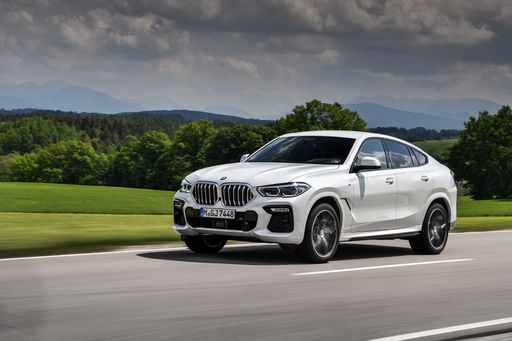 @ press.bmwgroup.com
@ press.bmwgroup.com
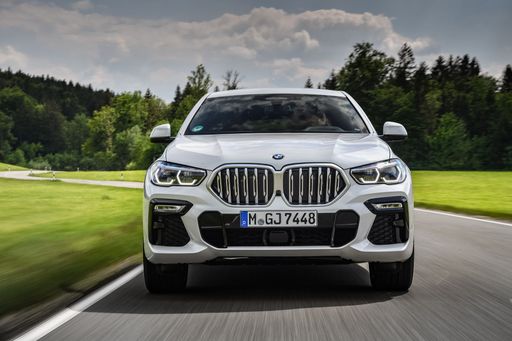 @ press.bmwgroup.com
@ press.bmwgroup.com
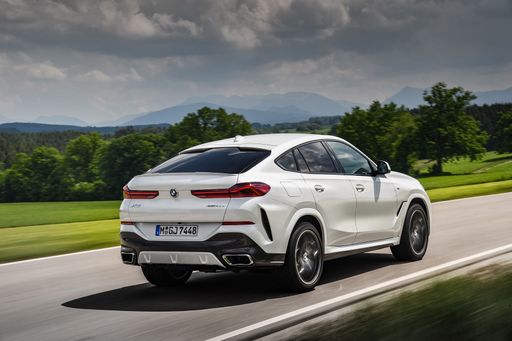 @ press.bmwgroup.com
@ press.bmwgroup.com
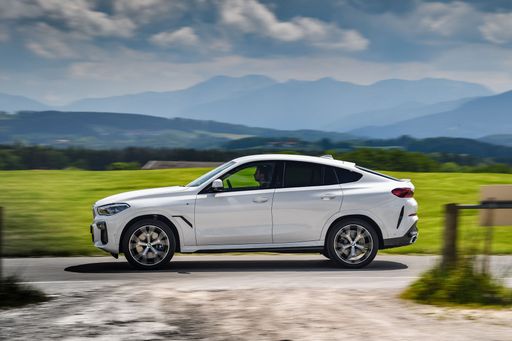 @ press.bmwgroup.com
@ press.bmwgroup.com
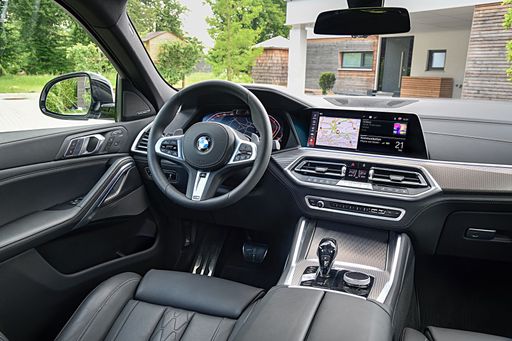 @ press.bmwgroup.com
@ press.bmwgroup.com
Nissan Leaf
The Nissan Leaf stands out as a pioneering model in the realm of electric vehicles, known for its impressive blend of practicality and eco-friendliness. It offers a smooth and quiet driving experience, making it an ideal choice for city commuting and longer journeys alike. The interior design is both comfortable and intuitive, providing drivers with a sense of modernity and ease of use.
details @ germany.nissannews.com
@ germany.nissannews.com
 @ germany.nissannews.com
@ germany.nissannews.com
 @ germany.nissannews.com
@ germany.nissannews.com
 @ germany.nissannews.com
@ germany.nissannews.com

|

|
|
|
|
Costs and Consumption |
|
|---|---|
|
Price
83600 - 146400 £
|
Price
30800 - 37200 £
|
|
Consumption L/100km
7.1 - 12.7 L
|
Consumption L/100km
-
|
|
Consumption kWh/100km
-
|
Consumption kWh/100km
16.7 - 17.8 kWh
|
|
Electric Range
-
|
Electric Range
270 - 385 km
|
|
Battery Capacity
-
|
Battery Capacity
39 - 59 kWh
|
|
co2
187 - 288 g/km
|
co2
0 g/km
|
|
Fuel tank capacity
80 - 83 L
|
Fuel tank capacity
-
|
Dimensions and Body |
|
|---|---|
|
Body Type
SUV
|
Body Type
Hatchback
|
|
Seats
5
|
Seats
5
|
|
Doors
5
|
Doors
5
|
|
Curb weight
2240 - 2445 kg
|
Curb weight
1580 - 1756 kg
|
|
Trunk capacity
580 L
|
Trunk capacity
385 - 394 L
|
|
Length
4948 - 4960 mm
|
Length
4490 mm
|
|
Width
2004 - 2019 mm
|
Width
1788 mm
|
|
Height
1695 - 1700 mm
|
Height
1540 - 1545 mm
|
|
Payload
595 - 695 kg
|
Payload
384 - 415 kg
|
Engine and Performance |
|
|---|---|
|
Engine Type
Diesel MHEV, Petrol MHEV
|
Engine Type
Electric
|
|
Transmission
Automatic
|
Transmission
Automatic
|
|
Transmission Detail
Automatikgetriebe
|
Transmission Detail
Reduction Gearbox
|
|
Drive Type
All-Wheel Drive
|
Drive Type
Front-Wheel Drive
|
|
Power HP
298 - 625 HP
|
Power HP
150 - 217 HP
|
|
Acceleration 0-100km/h
3.9 - 6.1 s
|
Acceleration 0-100km/h
6.9 - 7.9 s
|
|
Max Speed
235 - 250 km/h
|
Max Speed
144 - 157 km/h
|
|
Torque
540 - 750 Nm
|
Torque
320 - 340 Nm
|
|
Number of Cylinders
6 - 8
|
Number of Cylinders
-
|
|
Power kW
219 - 460 kW
|
Power kW
110 - 160 kW
|
|
Engine capacity
2993 - 4395 cm3
|
Engine capacity
-
|
General |
|
|---|---|
|
Model Year
2023
|
Model Year
2019
|
|
CO2 Efficiency Class
G
|
CO2 Efficiency Class
A
|
|
Brand
BMW
|
Brand
Nissan
|
BMW X6
Introduction to the BMW X6
The BMW X6 stands as a striking example of automotive innovation, blending power with luxury. This sports activity coupe (SAC) seamlessly fuses the dynamics of a coupe with the robust presence of an SUV. As part of BMW's acclaimed X Series, the X6 continues to captivate with its athletic traits and cutting-edge technology.
Innovative Features and Design
The BMW X6 is a visual tour de force with its unmistakable silhouette, accentuated by a sculpted bonnet and dynamic contours. This elegance is matched by its functionality, providing a spacious interior with a luxurious finish, highlighted by high-quality materials and the latest infotainment technology. The user-centric iDrive system offers intuitive control, enhancing the driving experience through an immersive digital interface.
Performance and Powertrain
Under the bonnet, the BMW X6 offers a range of powerful engines, showcasing both diesel and petrol mild-hybrid configurations. With outputs ranging from 298 to a commanding 625 PS, the X6 delivers exhilarating performance, combined with intelligent all-wheel drive for enhanced stability and traction.
Efficiency and Environmental Considerations
Despite its formidable power, the BMW X6 demonstrates a commitment to efficiency. With a fuel consumption range between 7.2 to 12.7 L/100km and CO2 emissions from 188 to 288 g/km, it offers competitive efficiency within its class. These figures reflect BMW’s dedication to reducing environmental impact without compromising on potency.
Technical Precision and Handling
The advanced adoption of features such as adaptive suspension and Dynamic Stability Control ensures the X6 handles with precision. This model exhibits responsive steering and a composed ride, navigating both urban settings and open roads with ease, making it as practical as it is powerful.
Safety and Driver Assistance
Safety is paramount in the BMW X6, equipped with a myriad of driver assistance systems. From the latest BMW Head-Up Display to the robust suite of advanced safety technologies, including collision warning and automatic emergency braking, the X6 prioritizes both security and peace of mind.
Conclusion
The BMW X6 continues to set benchmarks in the crossover segment, marrying dynamic performance with cutting-edge technology. Its blend of luxury, innovation, and power make it a standout choice for those seeking an adventurous yet refined driving experience. Whether navigating city streets or venturing into the countryside, the X6 offers a compelling mix of style, substance, and performance.
Nissan Leaf
Introduction to the Nissan Leaf: A Pioneer in Electric Mobility
The Nissan Leaf has established itself as a trailblazer in the realm of electric vehicles (EVs) since its launch. As we delve into its present-day iterations, the Leaf continues to soar in popularity due to remarkable advancements in technology and sustainability. Let's explore what makes the Nissan Leaf a standout in today's automotive market.
Power and Performance: Under the Hood of the Nissan Leaf
The Nissan Leaf boasts a power output ranging from 150 to 217 PS, depending on the battery option chosen. The vehicle's electric motor, a product of cutting-edge engineering, offers instant torque ranging from 320 to 340 Nm, resulting in impressive acceleration capabilities. The 0 to 100 km/h dash is achieved in as little as 6.9 seconds, showcasing its prowess in electric performance.
Battery Technology: Efficient Energy Management
When discussing the Nissan Leaf, battery technology is at the forefront. The available battery capacities range from 39 to 59 kWh, supporting an electric range between 270 to 385 km. This flexibility allows drivers to choose a model that best fits their driving habits, providing peace of mind for longer journeys without frequent recharging.
Sustainability: The Environmental Edge
One of the primary attractions of the Nissan Leaf is its commitment to sustainability. As an all-electric vehicle, it produces zero CO2 emissions, placing it in the top tier of the CO2-efficiency class with an 'A' rating. This clean energy approach contributes significantly to reducing environmental impact and supports Nissan's drive towards a greener future.
Design and Comfort: Aesthetic Appeal and Practicality
The Nissan Leaf is not just about efficiency; it's also designed for comfort and utility. With its sleek hatchback body and dimensions of 4490 mm in length, 1788 mm in width, and a height of up to 1545 mm, it offers ample interior space. The boot capacity ranges from 385 to 394 litres, providing sufficient storage for everyday needs. The model accommodates five passengers comfortably, ensuring a pleasant ride for everyone.
Innovations and Safety: Advanced Features for Peace of Mind
Nissan equips the Leaf with an array of intelligent features that enhance safety and convenience. The available equipment lines, including N-CONNECTA, Tekna, e+ N-CONNECTA, and e+ Tekna, offer varying levels of technology integration. ProPILOT Assist, e-Pedal, and a comprehensive suite of driver-assistance technology are just a few examples that highlight Nissan's commitment to innovation in the EV market.
Conclusion: The Nissan Leaf Continues to Lead
With prices ranging from €35,900 to €43,400, the Nissan Leaf remains an attractive choice for those looking to embrace electric mobility. It perfectly balances performance, design, and sustainability, making it a compelling choice in the competitive EV landscape. The Nissan Leaf not only represents the future of driving but also reinforces why it continues to be a leader in the electric vehicle community.
The prices and data displayed are estimates based on German list prices and may vary by country. This information is not legally binding.
